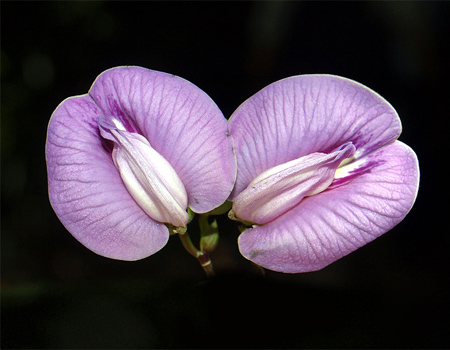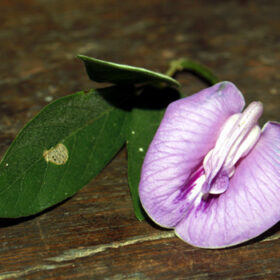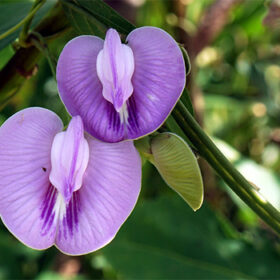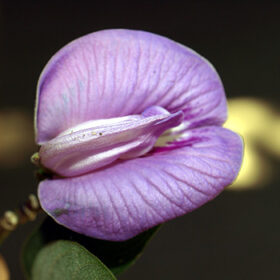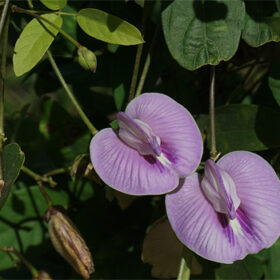Identification:
A perennial, herbaceous, climbing plant. Stems are lightly pubescent, becoming woody with age. Trifoliate leaves, with leaflets that are elliptic or ovate-oblong in shape. Inflorescences are axillary clusters with 3-5 flowers, ranging in color from pale to dark lilac, sometimes white. Pods are straight, 4-17 cm long, and 6-7 mm wide, straight to slightly curved and tapering to a beak, containing 20 seeds. Seeds are 4-5 mm x 3-4 mm x 2 mm, dark brown in color, mostly with darker spots. Seed weight: 100 seeds weigh approximately 2.5g.
Biology and Ecology:
The species grows wild along fences, in vacant lots, or in bushes from low altitudes up to 800m. The plant is light-loving, drought-tolerant, and can withstand poor, degraded soils. Seed regeneration is good. Flowering mainly occurs during the dry season from September to November each year.
Distribution:
The plant is distributed in most southern provinces in vacant lots and agricultural land. Furthermore, it is also distributed in India, Sri Lanka, etc.
Uses:
Used as a ground cover plant for perennial orchards, mixed with grass for grazing, and harvested as livestock feed or green manure.

